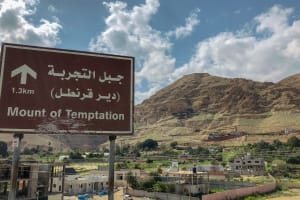France’s concession to its Muslims

A recently published French government report has stirred significant debate by suggesting that France should consider recognizing a Palestinian state as part of efforts to address growing tensions within its Muslim communities. The official document, titled "Frères Musulmans et Islamisme Politique en France"(Muslim Brotherhood and Political Islam in France), provides a comprehensive analysis of Islamist influences in the country and proposes policy measures to promote social cohesion.
The report's most notable recommendation - that France should weigh recognition of Palestinian statehood as part of a broader strategy to counter radicalization - has sparked intense discussion about the intersection of domestic social policy and foreign affairs. While some view this as a pragmatic approach to national security, others see it as an inappropriate concession to political Islam.
Key Findings of the Official Report
The government-commissioned study, based on extensive field research and academic analysis, presents several critical observations:
Shifting Muslim Community Sentiments
Documents a significant rise in pro-Palestinian sentiment among French Muslims following the 2023 Gaza conflict
Notes increasing frustration with France's traditional pro-Israel stance
Influence of Islamist Networks
Traces the organizational structure of Muslim Brotherhood-affiliated groups in France
Highlights their growing role in shaping political consciousness around Middle East issues
Radicalization Risks
Warns that unaddressed grievances about Palestine could be exploited by extremist recruiters
Recommends proactive measures to prevent alienation of young French Muslims
The Palestinian Statehood Recommendation
The report's most controversial suggestion proposes that France should:
"Consider the strategic value of recognizing Palestinian statehood as part of a comprehensive approach to improving relations with France's Muslim communities and countering extremist narratives."
This recommendation appears in a section analyzing potential "confidence-building measures" between the French state and its Muslim citizens. The authors emphasize this should be part of a broader diplomatic initiative rather than an isolated gesture.
Government Response and Political Reactions
Official Position
The Macron administration has acknowledged the report's publication but maintains that any decision on Palestinian recognition would be based on foreign policy considerations
Foreign Ministry officials stress France remains committed to a negotiated two-state solution
Political Debate
Center-Left: Some Socialist and Green politicians have welcomed the recommendation as timely
Center-Right: Les Républicains party has condemned the suggestion as "dangerous politicization of foreign policy"
Far Right: Marine Le Pen's National Rally calls it "proof of Islamist influence over government policy"
Expert Analysis
Middle East scholars and counterterrorism experts are divided on the proposal's merits:
Supportive Views:
"This reflects a realistic assessment of how international issues affect domestic security" - Prof. Jean-Pierre Filiu, Sciences Po
"A carefully timed recognition could actually strengthen France's mediating role" - Dr. Karim Emile Bitar, IRIS
Critical Perspectives:
"Mixing domestic appeasement with state recognition sets a dangerous precedent" - Prof. Gilles Kepel, PSL University
"Could be perceived as rewarding violence while doing little to address root causes of radicalization" - Dr. Marc Hecker, IFRI
Historical Context
France's position on Palestine has evolved gradually:
1982: First European country to recognize PLO
2014: Parliament votes symbolic resolution supporting recognition
2022: Macron reaffirms support for two-state solution but opposes unilateral moves
The report suggests this incremental approach may no longer align with domestic realities.
Potential Implications
Domestic Social Impact
Could improve government relations with mainstream Muslim organizations
Risk of backlash from those seeing it as concession to Islamist pressure
Foreign Policy Consequences
Might enhance France's credibility in Arab world
Could strain relations with Israel and pro-Israel groups in Europe
European Leadership
Potential to influence broader EU policy if adopted
Risk of fragmenting European consensus on Middle East peace process
Conclusion
The published report represents an official acknowledgment of the complex interplay between France's domestic social challenges and its international positioning. While not constituting immediate policy, its recommendations highlight the growing pressure on Western governments to reconcile their foreign policies with increasingly vocal diaspora communities.
As France prepares for upcoming elections and ongoing debates about national identity, the Palestinian question has unexpectedly emerged as both a diplomatic challenge and a domestic social issue. The government's handling of these recommendations will likely have lasting consequences for France's social cohesion and international standing.
Key Facts:
Official government report document based on 18 months of research including 45 academic interviews
Part of broader strategy to counter Islamist influence
Recommendation framed as confidence-building measure
Comes amid rising tensions over Middle East conflicts in French suburbs
The full report is available on the French government's official documentation portal.
US Secretary of State Marco Rubio said recently that people who are advocating a Palestinian state “can’t even tell you where this Palestinian state is”.

Aurthur is a technical journalist, SEO content writer, marketing strategist and freelance web developer. He holds a MBA from the University of Management and Technology in Arlington, VA.
You might also like to read this:















